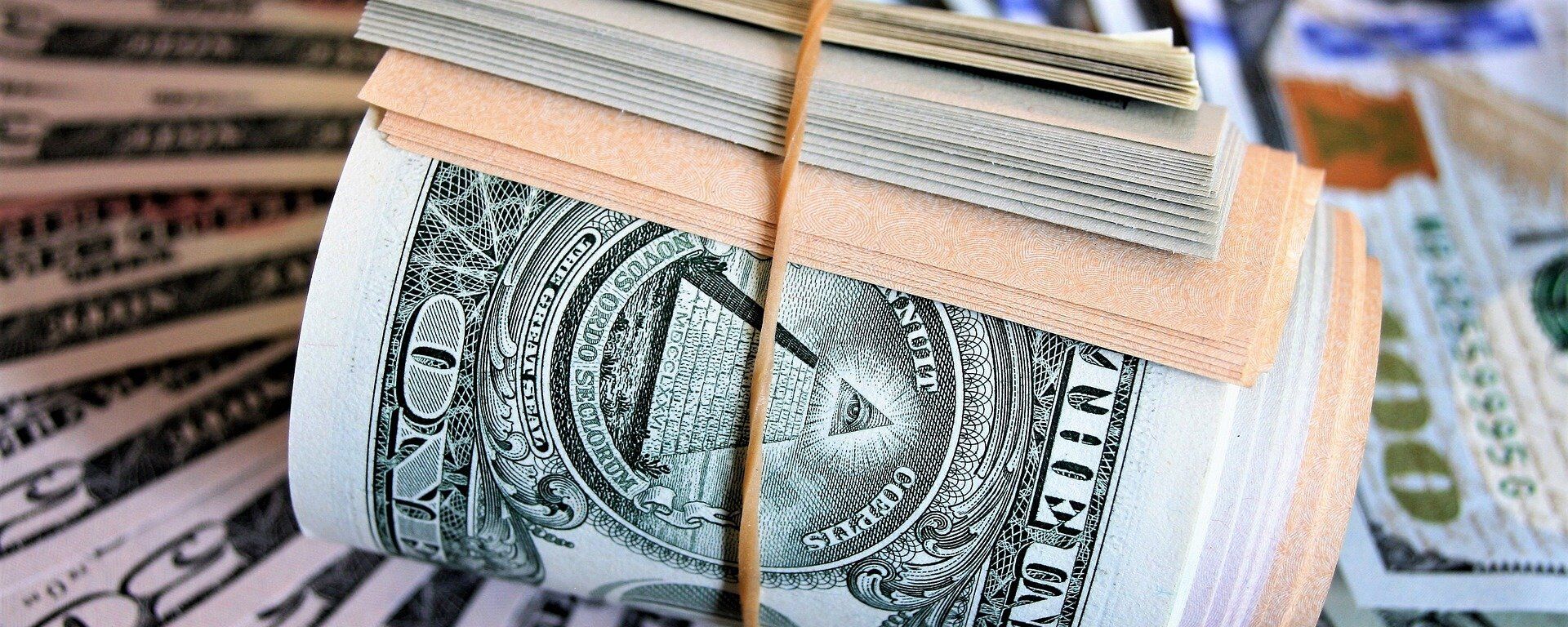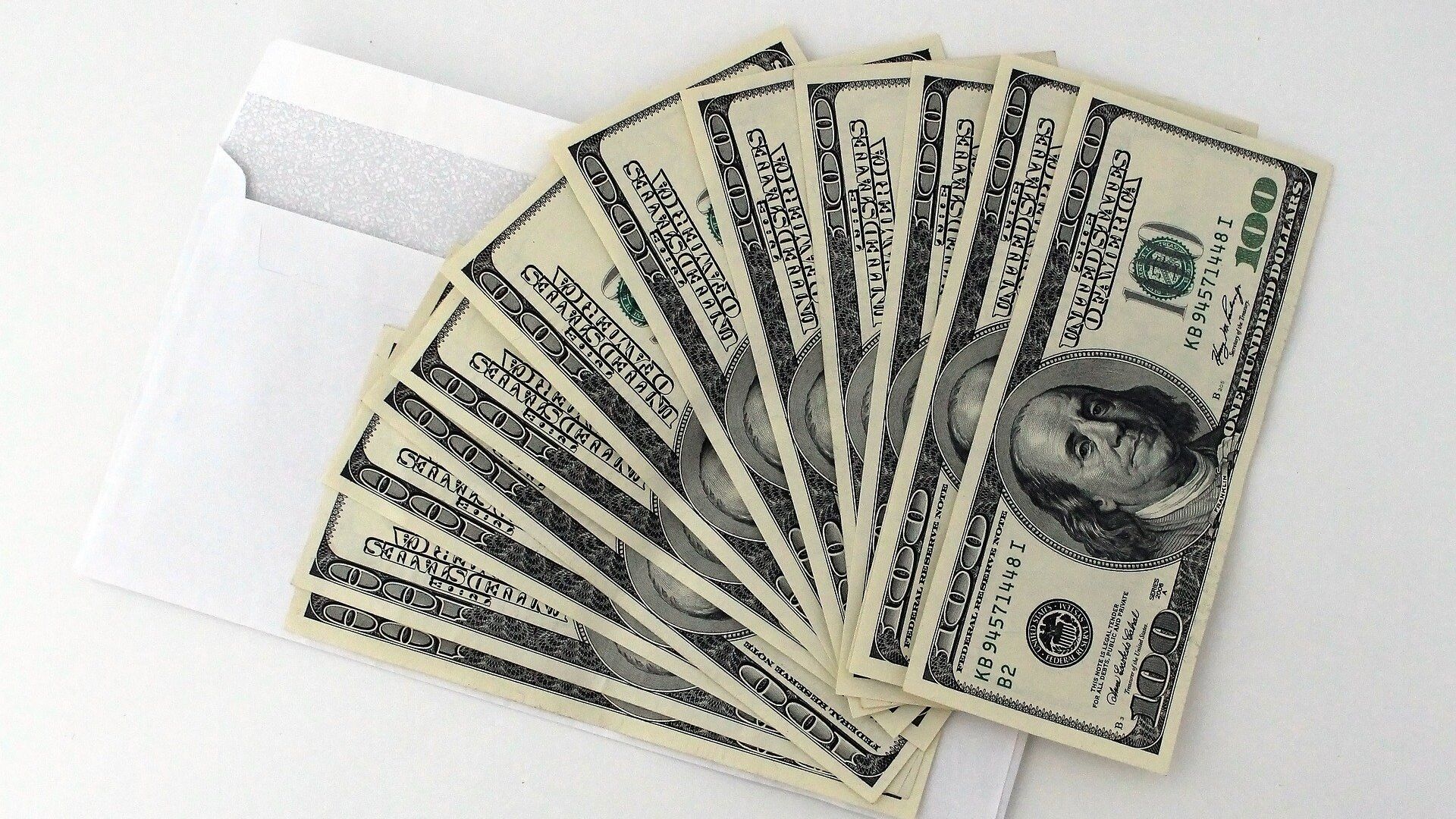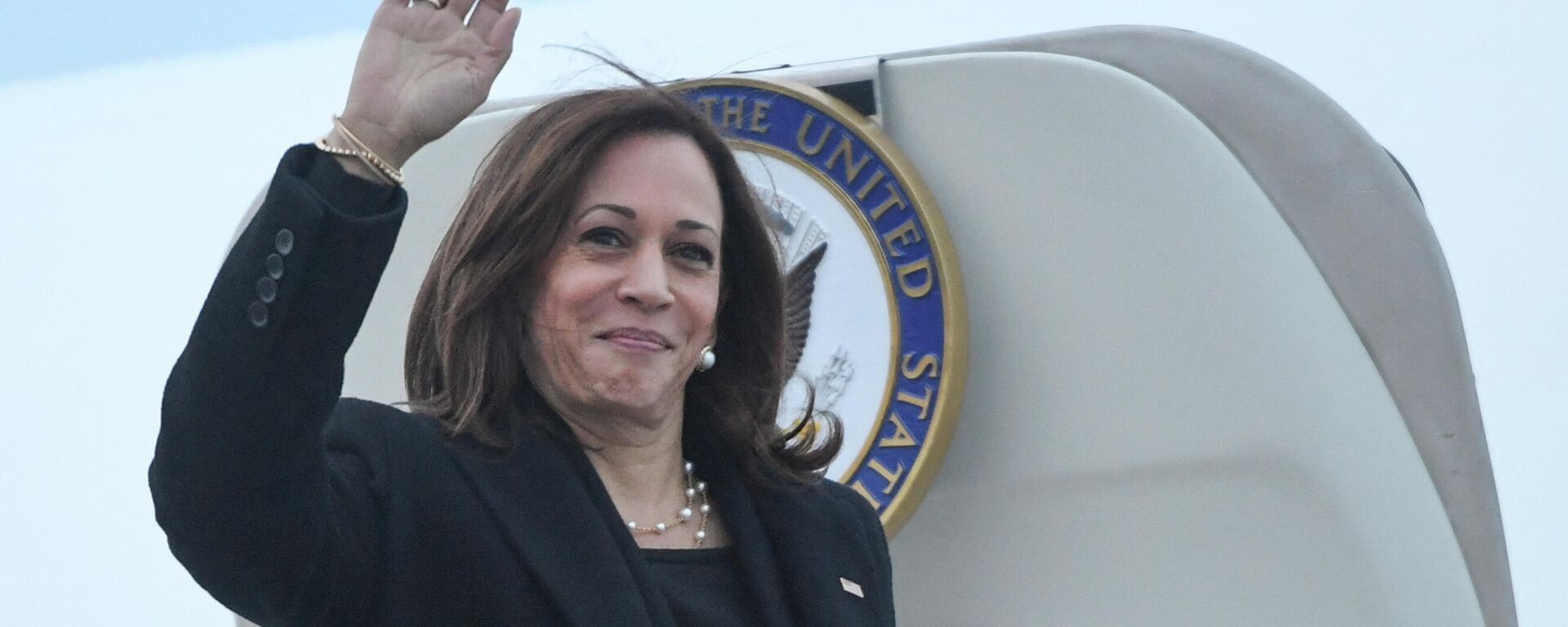https://sputnikglobe.com/20220411/dark-money-already-flooding-2024-presidential-campaign-report-finds-1094683548.html
Dark Money Already Flooding 2024 Presidential Campaign, Report Finds
Dark Money Already Flooding 2024 Presidential Campaign, Report Finds
Sputnik International
The 2022 midterms are still more than half a year away, but dark money is already funneling into potential 2024 presidential candidates, and there is no way... 11.04.2022, Sputnik International
2022-04-11T20:23+0000
2022-04-11T20:23+0000
2022-04-11T20:20+0000
joe biden
donald trump
tom cotton
mike pence
nikki haley
larry hogan
marco rubio
campaign finance
https://cdn1.img.sputnikglobe.com/img/105751/83/1057518303_0:175:1920:1255_1920x0_80_0_0_eb53532624080c8c9881d582e7ed927b.jpg
According to a report from Politico, at least a dozen potential presidential hopefuls are receiving dark money to their Super PACs through nonprofit organizations. However, it's worth noting that until a candidate officially declares their political bid, there is no requirement for the nonprofit to disclose who their donors are.Nonprofit organizations do have limits on how much of their spending can be politically motivated, but even that small restriction seems to go largely unenforced. In 2016, Sen. Marco Rubio (R-FL) raised $22 million, the vast majority of which came from either one or two anonymous donors. That was not known to the public until the nonprofit filed its taxes at the end of the year, and even today, the identity of the donors remain unknown.While the group - Conservative Solutions Project - spent millions on ads and research, its nonpolitical activities seem to be scant or nonexistent, despite the requirement that nonprofits limit their political activity to less than half of their expenditures.The nonprofit groups allow candidates to start the groundwork of a campaign before declaring their intentions and subjecting themselves to more campaign contribution regulations. Such start-up operations include locking down staff they want to use in their actual campaigns, building email lists, performing polling and research. Those activities cost a lot of money: $14.4 billion was reportedly spent on the 2020 election, and significant funding is happening without any disclosure to the American voter who is bankrolling their leaders.According to Politico, more nonprofits are supporting Republican candidates this election cycle than Democrats, likely because US President Joe Biden is expected to run for reelection in 2024. Biden and former President Donald Trump’s associated nonprofits are suspected to be the two largest dark money groups this year, but there are two other significant Democratic politicians with dark money groups.Current Secretary of Transportation and former 2020 primary hopeful Pete Buttigieg is associated with Win the Era Action Fund, though the organization has been quiet since the former mayor joined Biden’s cabinet.Democratic Governor Phil Murphy of New Jersey launched an organization in February, leading to speculation that he may be considering a presidential run, but he has repeatedly denied that he has presidential aspirations in 2024. He has declined to say if the group’s donors will be publicly revealed.Republican figures receiving funding from nonprofit groups include: Trump (America First Works); former Vice President Mike Pence (Advancing American Freedom); Arkansas Senator Tom Cotton (America One Policies); Maryland Governor Larry Hogan (An America United); former US Ambassador to the UN Nikki Haley (Stand for America); the aforementioned Florida Senator Marco Rubio (Stand Up to China); Nebraska Senator Ben Sasse (America 101); Former Secretary of the State Mike Pompeo (Champion American Values Fund); and South Carolina Senator Tim Scott (Opportunity Matters Network).There have been several attempts to reform campaign financing since the last major reform passed in 2002. Most recently, the Voting Rights Act included campaign finance regulations aimed at reducing money in politics, but it failed in the Senate.
https://sputnikglobe.com/20220313/midterms-kamala-harris-tells-democratic-voters-they-got-what-they-ordered-1093825959.html
https://sputnikglobe.com/20210123/bidens-election-campaign-set-new-dark-money-donation-record-media-says-1081859245.html
Sputnik International
feedback@sputniknews.com
+74956456601
MIA „Rossiya Segodnya“
2022
News
en_EN
Sputnik International
feedback@sputniknews.com
+74956456601
MIA „Rossiya Segodnya“
Sputnik International
feedback@sputniknews.com
+74956456601
MIA „Rossiya Segodnya“
joe biden, donald trump, tom cotton, mike pence, nikki haley, larry hogan, marco rubio, campaign finance
joe biden, donald trump, tom cotton, mike pence, nikki haley, larry hogan, marco rubio, campaign finance
Dark Money Already Flooding 2024 Presidential Campaign, Report Finds
The 2022 midterms are still more than half a year away, but dark money is already funneling into potential 2024 presidential candidates, and there is no way for the American people to find out who is funding their politicians.
According to
a report from Politico, at least a dozen potential presidential hopefuls are receiving dark money to their Super PACs through nonprofit organizations.
However, it's worth noting that until a candidate officially declares their political bid, there is no requirement for the nonprofit to disclose who their donors are.
Nonprofit organizations do have limits on how much of their spending can be politically motivated, but even that small restriction seems to go largely unenforced. In 2016, Sen. Marco Rubio (R-FL) raised $22 million, the vast majority of which came from
either one or two anonymous donors.
That was not known to the public until the nonprofit filed its taxes at the end of the year, and even today, the identity of the donors remain unknown.While the group - Conservative Solutions Project - spent millions on ads and research, its nonpolitical activities seem to be scant or nonexistent, despite the requirement that nonprofits limit their political activity to less than half of their expenditures.
The nonprofit groups allow candidates to start the groundwork of a campaign before declaring their intentions and subjecting themselves to more campaign contribution regulations. Such start-up operations include locking down staff they want to use in their actual campaigns, building email lists, performing polling and research.
Those activities cost a lot of money: $14.4 billion was reportedly spent on the 2020 election, and significant funding is happening without any disclosure to the American voter who is bankrolling their leaders. According to Politico, more nonprofits are supporting Republican candidates this election cycle than Democrats, likely because US President Joe Biden is expected to run for reelection in 2024.
Biden and former President Donald Trump’s associated nonprofits are suspected to be the two largest dark money groups this year, but there are two other significant Democratic politicians with dark money groups.

23 January 2021, 17:40 GMT
Current Secretary of Transportation and former 2020 primary hopeful Pete Buttigieg is associated with Win the Era Action Fund, though the organization has been quiet since the former mayor joined Biden’s cabinet.
Democratic Governor Phil Murphy of New Jersey launched an organization in February, leading to speculation that he may be considering a presidential run, but he has repeatedly denied that he has presidential aspirations in 2024.
He has declined to say if the group’s donors will be publicly revealed.Republican figures receiving funding from nonprofit groups include: Trump (America First Works); former Vice President Mike Pence (Advancing American Freedom); Arkansas Senator Tom Cotton (America One Policies); Maryland Governor Larry Hogan (An America United); former US Ambassador to the UN Nikki Haley (Stand for America); the aforementioned Florida Senator Marco Rubio (Stand Up to China); Nebraska Senator Ben Sasse (America 101); Former Secretary of the State Mike Pompeo (Champion American Values Fund); and South Carolina Senator Tim Scott (Opportunity Matters Network).
There have been several attempts to reform campaign financing since the last major reform passed in 2002.
Most recently, the Voting Rights Act included campaign finance regulations aimed at reducing money in politics, but it failed in the Senate.



